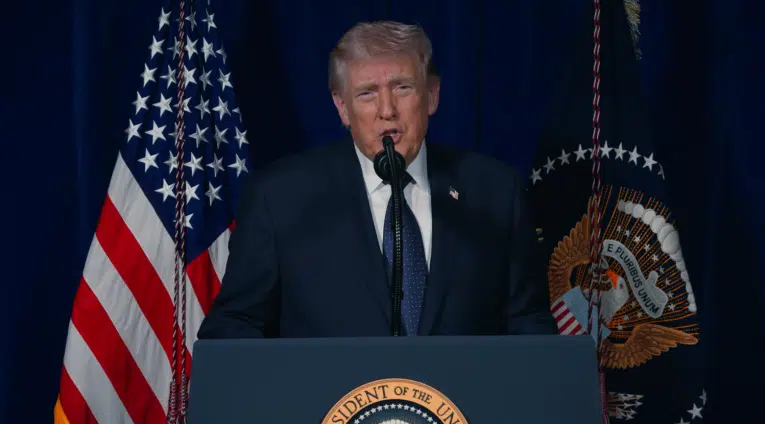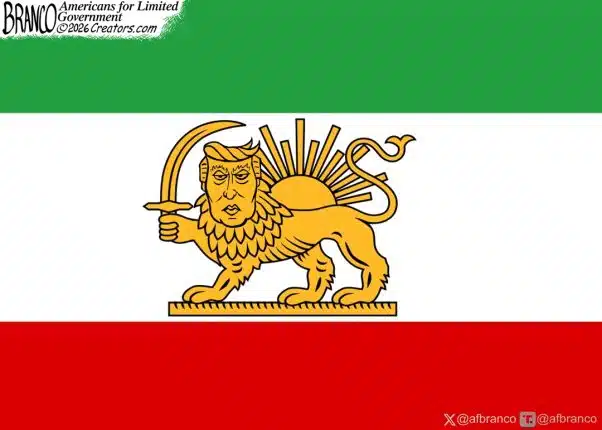By Natalia Castro
The left enjoys painting President Trump as a ruthless totalitarian, but when looking at his track record so far in office, it is clear he is anything but. For years, the executive branch has expanded their power into all areas of government, rather than just enforcement of legislation, the court has been weaponized as a legislator themselves, and the legislative branch has been able to scrape by without truly doing their jobs. President Trump’s actions have restored the balance and separation of powers that our founding father crafted.
Any 7th-grade civics student can explain that the legislative branch makes the law, the executive branch enforces the law, and the judicial branch interprets laws. However, under the Obama Administration, the executive branch expanded their control over nearly all aspects of government. Executive agencies took the role of lawmakers while Congress floundered.
One of President Trump’s first actions was to remove these burdensome regulations the executive branch imposed. With his January 30, 2017 executive order, Trump required that for every new regulation added, the respective executive department must identify at least two existing regulation to be repealed.
The Trump Administration has far exceeded this goal, now agencies have issues 22 deregulations for every one new regulatory action. This returns the authority for lawmaking back to Congress rather than executive agencies.
Congress has followed suit by using the Congressional Review Act to express disapproval of burdensome regulations imposed by executive agencies, leading to their rescission. The White House estimates federal agencies have achieved $8.1 billion in lifetime net regulatory cost savings due to the removal of these clear examples of executive overreach.
In the proposed omnibus bill for government funding, Congress has the continued opportunity to restore their Article 1 power of the purse. The bill introduced as H.R. 3354 includes defunds for Affirmatively Furthering Fair Housing and portions of the Endangered Species Act. These Obama era initiatives allowed executive agencies such as the Department of Housing and Urban Development and the Fish and Wildlife Service unprecedented control over local housing authority and lands, finally Republicans are taking control over rouge agencies.
President Trump has also identified the most egregious areas of executive overreach employed by the Obama Administration as opportunities to return responsibility to Congress.
Ultimately, it is the responsibility of Congress to engage in treaties with foreign countries, but the Obama Administration stripped them of this power by using waiver authority to relieve the country of sanctions in exchange for minimal reductions by Iran on their nuclear activity.
President Trump took immediate action to decertify this deal and return it to its proper authority- Congress. This January, Congress will have two deadlines within which they can decide to impose harsher sanctions or reimpose old sanctions on Iran. Whether or not this occurs remains controversial, but one cannot deny that whatever occurs will be well within the grounds of the Constitution rather than unnecessary executive authority.
Similarly, President Trump has thrown President Obama’s Deferred Action for Childhood Arrivals (DACA) back to Congress for proper Congressional approval if they deem it is warranted. DACA usurped the authority Congress has over immigration to grant amnesty for millions of children living illegally in the United States. The legislation faced legal challenges that would have inevitably ended the program due to its unconstitutional implementation. President Trump ended the program before the chaos in the courts, but gave Congress a window of time to consider its legitimacy and reinstate it if warranted.
Again, the result of this kickback to Congress might not be what all Republicans hope for, but it returns critical constitutional authority to the legislative branch that Obama stole.
Finally, the judiciary was also weaponized under previous administrations in order to become a legislative body as well.
Through sue and settle lawsuits, the Courts received unique opportunities to act as lawmakers rather than law clarifiers. Trump’s EPA director Scott Pruitt called this “regulation by litigation”, where consent decrees and settlement agreements, done within the courts to resolve lawsuits, became guidelines for action by regulatory agencies.
During the Obama Administration, the Sierra Club used this tactic as part of their “Beyond Coal” campaign, effectively allowed them to use litigation to force the closure of coal fired power plants.
Trump’s EPA became the first agency to issue an order to end these agreements. As Pruitt explains, “We will no longer go behind closed doors and use consent decrees and settlement agreements to resolve lawsuits filed against the Agency by special interest groups where doing so would circumvent the regulatory process set forth by Congress. Additionally, gone are the days of routinely paying tens of thousands of dollars in attorney’s fees to these groups with which we swiftly settle.”
President Trump is far from a totalitarian, he has taken integral steps to revitalize the separation of powers outlined in our Constitution. Trump has restored critical powers to Congress and reigned in executive agencies. While decades of damage still pervert the balance of powers, the Trump Administration has taken great steps to restore Constitutional integrity.
Natalia Castro is a contributing editor at Americans for Limited Government







